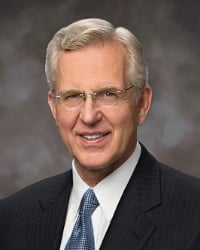
“I think we would all agree that those who profess no religious belief can be, and often are, good, moral people. We would not agree, however, that this happens without divine influence. I am referring to the Light of Christ. The Savior declared, “I am the true light that lighteth every man that cometh into the world.” Whether aware of it or not, every man, woman, and child of every belief, place, and time is imbued with the Light of Christ and therefore possesses the sense of right and wrong we often call conscience.”